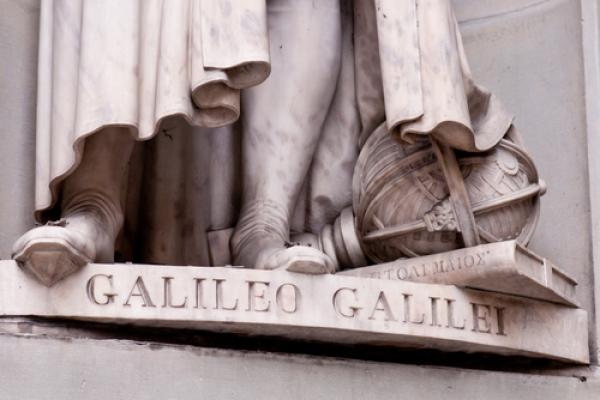Oct 2, 2012
When Galileo saw this in the 16th century, it cemented the idea that Venus goes around the sun and not the Earth. It was the beginning of the end for an Earth-centered universe.
Galileo was a mathematician, astronomer, philosopher, and physicist. He became known as the father of science.
He was a wonderer, and his wondering encouraged him to think differently from his fellow Pisans. When he was a child, people said, "He has stars in his eyes."
Read the Full Article

Already a subscriber? Login
